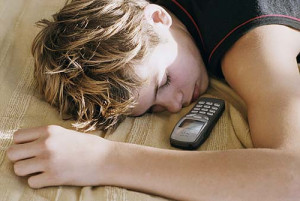Why healthy sleep habits are an important addiction prevention tool. 
Is sleep a prevention tool against addiction? A new study in the journal Alcoholism: Clinical and Experimental Research has found that 27 percent of school-age children and 45 percent of teens don’t get enough sleep. Either from school work, extracurricular activities, stress, and/or diagnosed forms of insomnia. And the study found that teens with sleep issues were more like to have drinking problems later on in life. Alarmingly, more and more teens are being prescribed sleeping pills, which can bring about a cascade of other problems (such as headaches, daytime drowsiness, and even dependence), often times without fully addressing the initial sleep problem.
It’s important to understand that there are safer alternatives to sleeping pills. There’s cognitive behavioral therapy, meditation and relaxation techniques that can be used. Talk with your kids about the importance of getting a good night sleep. Help them create a calming evening routine that excludes any technology, especially screens, an hour before bed. And help them create a consistent routine throughout the week and don’t stray to far from it on the weekends. This can help immensely with setting up cues to tell the body it’s time to sleep. Be sure to look a your teen’s stress levels as well. Stress can be very detrimental to healthy sleep. Learn ways together, such as exericising earlier in the day, to help reduce stress and bring on sleep.
Prevention.com published a great article on 20 Ways to Sleep Better Every Night that includes tips like no exercise four hours before bed, no caffeine after 2pm (or none at all for teens), take time to wind down, have a snack, use lavender or white noise. There are also some great tips for parents who might be struggling with sleep problems as well. Don’t be afraid also to reach out to a professional for some more help on how to encourage healthy sleep habits. It’s a great prevention tool!


